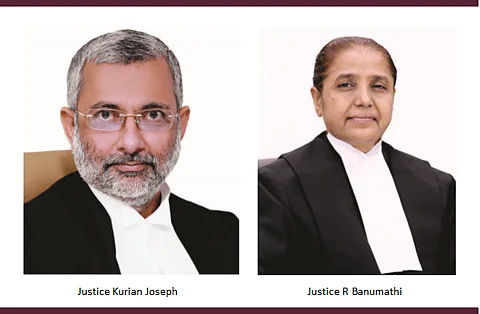
- News
- Columns
- Interviews
- Law Firms
- Apprentice Lawyer
- Legal Jobs
- हिंदी
- ಕನ್ನಡ

In a significant step, a Bench of Justices Kurian Joseph and R Banumathi has directed that the order of the Supreme Court in Krishna Veni Nagam v. Harish Nagam, mandating use of video-conferencing in matrimonial disputes, should be reconsidered.